Are you ready to unlock the secrets of CNC machining materials and revolutionize your manufacturing process? If so, you've come to the right place. In this comprehensive guide, I'm going to walk you through everything you need to know about CNC machining materials. We'll explore the different types of materials, their characteristics, and the best practices for selecting and using them. By the end of this journey, you'll be equipped with the knowledge to make informed decisions, optimize your CNC machining processes, and explore the world of materials in the manufacturing industry.
Let's kick things off with a solid foundation. Understanding CNC machining materials is the first step on your journey to becoming a materials maestro. In this section, we'll delve into the basics, exploring what CNC machining materials are and how they relate to the world of manufacturing.
CNC machining materials are the raw substances used in Computer Numerical Control (CNC) machining processes. These materials can be metals, plastics, composites, or other substances that are shaped, cut, or milled to create precision parts and components. The choice of materials is a crucial decision in CNC machining, as it directly impacts the quality, functionality, and cost-effectiveness of the final product.
Materials are the building blocks of CNC machining. They determine the part's mechanical properties, appearance, and even the ease of machining. The choice of material can influence factors such as strength, weight, thermal conductivity, and electrical conductivity. Understanding how different materials behave during CNC machining is essential to make informed decisions.
Materials for CNC machining can be broadly categorized into two main groups: metals and plastics. Let's take a closer look at each category.
Metal materials are known for their durability, strength, and versatility. They are commonly used in CNC machining for applications requiring robust and high-precision components. Here are some of the most popular metal materials:
| Material | Characteristics | Common Applications |
|---|---|---|
| Steel | High strength, excellent machinability, and corrosion resistance. | Automotive parts, industrial equipment, tooling. |
| Aluminum | Lightweight, good thermal conductivity, and resistance to corrosion. | Aerospace, automotive parts, electronics. |
| Stainless Steel | Exceptional corrosion resistance, ideal for harsh environments. | Medical devices, food processing equipment. |
| Brass | Good electrical conductivity, corrosion resistance, and aesthetic appeal. | Musical instruments, decorative components. |
Plastic materials offer versatility and are often chosen for their low weight, electrical insulation properties, and ease of customization. Some common plastic materials used in CNC machining include:
| Material | Characteristics | Common Applications |
|---|---|---|
| Polyethylene | High chemical resistance, lightweight, and easy to machine. | Prototypes, medical devices, packaging. |
| Polypropylene | Low cost, excellent chemical resistance, and electrical insulation. | Automotive components, consumer products. |
| Polycarbonate | High impact resistance, optical clarity, and good dimensional stability. | Optical lenses, machine guards, electronic housings. |
As you can see, selecting the right material is crucial for the success of your CNC machining project. Your choice will depend on the specific requirements of your application, from strength and durability to electrical properties and aesthetics.
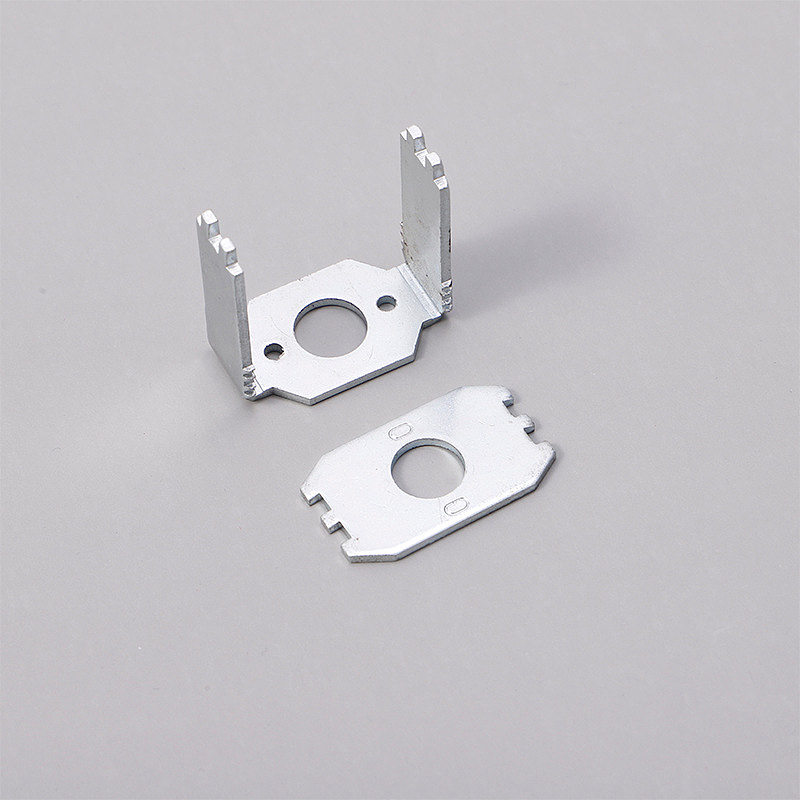
Now, it's time to dive deep into the pool of CNC machining materials. We'll explore the key players, including various metals and plastics. Discover the characteristics of materials like steel, aluminum, stainless steel, brass, polyethylene, polypropylene, and polycarbonate. You'll soon know which material is best suited for your specific application.
Steel is a powerhouse when it comes to CNC machining materials. It boasts high strength, excellent machinability, and resistance to corrosion. Steel comes in various grades, each tailored to specific applications. Let's take a closer look at some steel types commonly used in CNC machining:
| Steel Grade | Characteristics | Common Applications |
|---|---|---|
| Carbon Steel | High tensile strength, good for general-purpose machining. | Automotive parts, structural components. |
| Stainless Steel | Excellent corrosion resistance and hygiene properties. | Medical instruments, kitchen equipment. |
| Tool Steel | High hardness and wear resistance, ideal for cutting tools. | Drill bits, end mills, machining tools. |
Aluminum is known for its lightweight and excellent thermal conductivity. It is a popular choice for various applications, from aerospace to electronics. Some common aluminum alloys used in CNC machining include:
| Aluminum Alloy | Characteristics | Common Applications |
|---|---|---|
| 6061-T6 | Good machinability, excellent strength-to-weight ratio. | Aircraft components, bike frames. |
| 7075-T6 | High strength, used in high-stress applications. | Aerospace parts, structural components. |
| 2024-T3 | Good fatigue resistance and high corrosion resistance. | Aircraft structures, mechanical parts. |
Stainless steel offers exceptional corrosion resistance, making it a top choice for applications in harsh environments. Common grades include 304, 316, and 316L. These grades are often used in:
| Stainless Steel Grade | Characteristics | Common Applications |
|---|---|---|
| 304 | General-purpose stainless steel with good corrosion resistance. | Food processing equipment, architectural components. |
| 316 | Higher corrosion resistance and excellent for marine applications. | Marine hardware, chemical equipment. |
| 316L | Low carbon version of 316, reducing susceptibility to sensitization. | Surgical instruments, medical implants. |
Brass is admired for its excellent electrical conductivity, corrosion resistance, and aesthetic appeal. It's commonly used for decorative and electrical applications, such as musical instruments, electrical connectors, and architectural components.
Polyethylene is a versatile plastic material known for its high chemical resistance, lightweight nature, and ease of machining. It's frequently used in the production of prototypes, medical devices, and packaging.
Polypropylene is a low-cost plastic material with excellent chemical resistance and electrical insulation properties. It's chosen for a variety of applications, including automotive components and consumer products.
Polycarbonate is valued for its high impact resistance, optical clarity, and dimensional stability. It's commonly used in the manufacture of optical lenses, machine guards, electronic housings, and more.
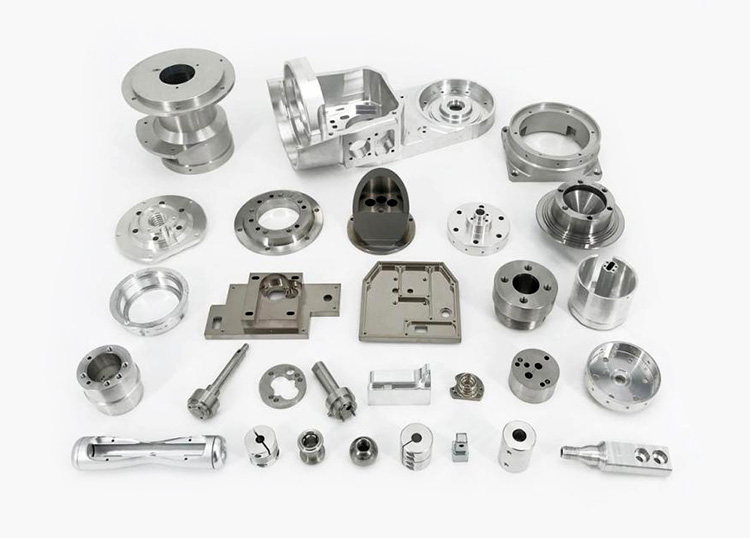
Choosing the right material for your CNC machining project involves understanding material properties and selecting the most suitable option. Let's delve deeper into the essential characteristics of materials and the criteria for making informed selections.
To make an informed choice, it's crucial to understand the key material properties and how they impact your project. Here are some vital material properties to consider:
Material hardness indicates its resistance to deformation, wear, and scratching. Harder materials are less prone to wear and are suitable for applications where durability is essential.
Strength measures a material's ability to withstand an applied force without failure. High-strength materials are crucial for structural components and load-bearing parts.
Thermal conductivity determines a material's ability to conduct heat. Materials with high thermal conductivity efficiently dissipate heat, making them ideal for applications where temperature control is critical.
Electrical conductivity measures a material's ability to conduct an electrical current. Choosing materials with suitable electrical properties is vital for electrical and electronic applications.
Corrosion resistance is essential for materials exposed to harsh environments, such as those subjected to moisture or chemical exposure. Choosing materials with high corrosion resistance can extend the lifespan of your components.
When selecting a material for your CNC machining project, several factors come into play. Here are the key criteria to consider:
Understanding the specific requirements of your application is paramount. Consider factors like load-bearing capacity, thermal stability, electrical properties, and environmental conditions.
Different materials exhibit varying levels of machinability. Some materials are easier to machine and result in faster production times and lower machining costs.
Budget constraints often play a significant role in material selection. Evaluate the overall cost, including material cost, machining costs, and post-processing costs.
For applications where visual appeal is crucial, such as consumer products or architectural components, the material's appearance and finish matter.
In industries like aerospace and healthcare, materials must comply with specific regulations and standards. Ensure your selected material meets the necessary requirements.
Weight considerations are essential for applications where weight is a critical factor, such as automotive and aerospace components. Lightweight materials can reduce fuel consumption and improve performance.
By carefully evaluating material properties and considering the selection criteria relevant to your project, you can make an informed choice that aligns with your project's goals and requirements. This step is critical to ensuring the success of your CNC machining venture.
CNC machining materials are the foundation of numerous industries, each benefiting from the unique properties and capabilities of various materials. In this section, we'll delve into real-world applications of CNC machining materials across diverse sectors.
The automotive industry heavily relies on CNC machining materials to produce components that meet high-performance and safety standards. Here are some common applications:
Engine Components: CNC-machined parts made from steel, aluminum, and specialized alloys contribute to engine efficiency, such as cylinder heads, pistons, and crankshafts.
Chassis and Suspension Parts: Materials like steel and aluminum are used to manufacture structural components, ensuring vehicle stability and safety.
Interior and Exterior Trim: Plastics, aluminum, and stainless steel are employed for creating aesthetically pleasing and durable interior and exterior components.
In the aerospace and aviation industry, CNC machining materials must meet stringent requirements for strength, weight, and durability. Some applications include:
Aircraft Structural Components: High-strength aluminum alloys and titanium are used for structural components, such as aircraft frames and wings.
Aerospace Engine Parts: Superalloys like Inconel and titanium are used to craft critical engine components, including turbine blades and casings.
Interior Cabin Components: Lightweight plastics, aluminum, and composites ensure passenger comfort and safety in cabin interiors.
Materials for medical device manufacturing must exhibit biocompatibility, corrosion resistance, and precision. Common applications in the medical field include:
Implants: Materials like titanium, stainless steel, and medical-grade plastics are used for creating orthopedic and dental implants.
Surgical Instruments: Precision instruments are manufactured from materials like stainless steel, titanium, and specialty alloys.
Medical Equipment Housing: Plastic materials like polycarbonate are used for housing medical equipment due to their durability and optical clarity.
The electronics industry relies on CNC machining materials to produce components with exceptional electrical properties and thermal management. Some applications include:
Printed Circuit Boards (PCBs): High-quality dielectric materials like FR-4 and aluminum PCBs are essential for electronic devices.
Heat Sinks: Aluminum and copper are used to create heat sinks that dissipate heat from electronic components.
Custom Enclosures: Plastics and aluminum housings protect electronic equipment while maintaining electrical insulation.
In the broader manufacturing sector, CNC machining materials play a versatile role in producing a wide range of components:
Tooling: Steel and carbide materials are used to create cutting tools, molds, and dies.
Prototyping: Plastic and aluminum materials are preferred for rapid prototyping to test and validate designs.
Consumer Products: Materials like plastics and aluminum are used to manufacture a wide range of consumer goods, from electronics to household items.
By understanding the practical applications of CNC machining materials across various industries, you can gain insights into how these materials can be tailored to meet specific needs. This knowledge can guide you in selecting the right material for your CNC machining projects, ensuring optimal performance and efficiency.
Optimizing your CNC machining processes is essential to ensure precision, efficiency, and cost-effectiveness. In this section, we'll explore a set of best practices that can help you achieve superior results in CNC machining.
Material Inspection: Before machining, thoroughly inspect the material for any defects, irregularities, or inconsistencies. Ensure it meets your quality standards.
Proper Workholding: Choose the appropriate workholding methods and fixtures to securely clamp the material in place, minimizing vibration and deflection during machining.
Orientation: Consider the grain direction for materials like wood or composites, and position the material to optimize cutting efficiency and quality.
Cutting Speed and Feed Rate: Adjust the cutting speed and feed rate based on the material and tooling. Optimal parameters prevent overheating, tool wear, and material deformation.
Tool Selection: Select the right cutting tools, taking into account the material and application. High-quality tools with the appropriate geometry are essential for precise machining.
Coolant and Lubrication: Use the right cutting fluid or coolant to improve chip evacuation, reduce heat buildup, and extend tool life.
Regular Tool Inspection: Periodically inspect cutting tools for wear, damage, or signs of deterioration. Replace or regrind tools as needed to maintain precision.
Tool Balancing: Ensure that toolholders and cutting tools are properly balanced to minimize vibrations and extend the lifespan of your tools.
Climb vs. Conventional Milling: Choose the appropriate milling technique (climb or conventional) based on the material and tooling to minimize tool deflection and surface finish issues.
Adaptive Machining: Implement adaptive toolpaths and strategies to maintain consistent chip loads and optimize cutting conditions for complex geometries.
Toolpath Optimization: Use CAM software to optimize toolpaths, reducing air cutting and minimizing machining time.
Deburring and Surface Finish: After machining, carefully deburr and finish machined parts to remove sharp edges and achieve the desired surface finish.
Dimensional Inspection: Use precision measurement tools like micrometers and calipers to verify that machined parts meet the specified dimensional tolerances.
Quality Assurance: Implement a comprehensive quality control process to ensure the final components meet all requirements and standards.
By incorporating these best practices into your CNC machining operations, you can enhance the efficiency and accuracy of your processes while reducing material wastage and tool wear. These strategies are essential for producing high-quality CNC machined components for various applications.
Understanding the CNC machining materials market is crucial for making informed decisions when sourcing materials for your projects. In this section, we'll introduce you to material suppliers, discuss material prices, and provide insights into market trends.
When sourcing materials for CNC machining, choosing reliable suppliers is essential. Here are some reputable suppliers known for providing high-quality materials:
McMaster-Carr: A one-stop-shop for a wide range of materials, tools, and components.
OnlineMetals.com: Offers a variety of metals in different shapes and sizes, making it easy to find the material you need.
Professional Plastics: Specializes in providing plastic materials for various industries.
Ryerson: Known for its extensive inventory of metals, including aluminum, stainless steel, and carbon steel.
Small Parts: Offers a broad selection of materials and components, making it a convenient choice for CNC machining.
Material prices can vary significantly depending on the type, grade, and quantity you require. Here are some approximate price ranges for common CNC machining materials:
Steel: $1.50 - $4.00 per pound, depending on the grade and type.
Aluminum: $1.00 - $3.00 per pound, with variations based on the alloy.
Stainless Steel: $2.50 - $6.00 per pound, depending on the grade.
Brass: $3.50 - $6.00 per pound, with variations based on the type.
Polyethylene: $1.00 - $3.00 per pound, depending on the specific grade.
Polypropylene: $1.00 - $3.00 per pound, based on the grade and specifications.
Polycarbonate: $1.50 - $5.00 per pound, depending on the thickness and type.
Keep in mind that prices may fluctuate due to market conditions and supplier-specific factors. It's essential to obtain quotes from suppliers based on your specific material requirements.
The CNC machining materials market is subject to evolving trends, including:
Sustainability: There's a growing emphasis on sustainable materials and processes, leading to increased use of recyclable materials and reduced waste.
Advanced Alloys: The aerospace and automotive industries are driving the demand for advanced alloys with improved strength-to-weight ratios and corrosion resistance.
Customization: Customers seek more customization options, leading to the development of specialized materials tailored to specific applications.
Digital Integration: The integration of digital technologies in materials sourcing and procurement is streamlining supply chains and enhancing material traceability.
By staying informed about market trends and building strong relationships with reliable suppliers, you can make well-informed decisions when sourcing materials for your CNC machining projects. This proactive approach will help you adapt to changing market conditions and ensure a steady supply of materials for your manufacturing needs.
As a CNC machining service provider, Richconn takes pride in offering top-tier CNC machining solutions tailored to your specific needs. Here, we'd like to introduce you to our company and the services we provide to support your CNC machining projects.
Richconn is a leading precision machine shop with a track record of excellence. Our company is driven by a commitment to precision, quality, and innovation. Here's what sets us apart:
State-of-the-Art Facilities: We boast cutting-edge CNC machining facilities equipped with the latest technology, ensuring exceptional precision and efficiency.
Experienced Team: Our team of skilled engineers and machinists bring extensive experience and expertise to every project.
Quality Assurance: We maintain strict quality control measures, ensuring that every component meets or exceeds your specifications.
Our CNC machining services are comprehensive and designed to meet a wide range of needs. Here's a snapshot of what we offer:
Precision Machining: We specialize in high-precision CNC turning service, capable of producing complex components with tight tolerances.
Materials Expertise: With an in-depth understanding of CNC machining materials, we help you choose the right material for your project.
Customization: We offer customization options to ensure that your components align perfectly with your requirements.
Prototyping: Our rapid prototyping services allow you to quickly test and validate designs before full-scale production.
Competitive Pricing: We strive to offer competitive pricing without compromising on quality.
To illustrate our capabilities and the quality of our work, here are a few success stories from our satisfied clients:
Aerospace Component Manufacturer: We supplied critical aerospace components made from high-strength aluminum alloys, contributing to our client's product reliability and performance.
Medical Device Company: Our precision machining services were instrumental in producing orthopedic implant components, ensuring a perfect fit and function for patients.
Electronics Manufacturer: We delivered customized heat sinks for a consumer electronics company, effectively managing heat dissipation in their devices.
Here's what our clients have to say about their experiences with Richconn:
"Richconn's attention to detail and commitment to quality make them a trusted partner for our CNC machining needs." - John M., Aerospace Engineer
"The flexibility and precision of Richconn's machining services have allowed us to bring innovative medical devices to market." - Sarah L., Medical Device Developer
"Richconn's expertise in materials and CNC machining has been a game-changer for our electronics manufacturing projects." - David H., Electronics Product Manager
Whether you're in the aerospace, medical, electronics, automotive, or any other industry, Richconn is here to support your CNC machining needs. Our experienced team and state-of-the-art facilities are ready to collaborate with you to bring your projects to life. Contact us today to discuss your specific requirements and how we can partner to achieve your machining goals.
Richconn is your trusted partner for CNC machining services, and we're dedicated to delivering precision, quality, and innovation to your projects. Feel free to reach out to us to learn more about how we can support your CNC machining endeavors.
 All You Need to Know About the Significance and Methods of Limit Fit for CNC PartsJuly 23, 2024This article will explore the significance, methods, and processes of achieving limit fit for CNC parts in modern manufacturing, ensuring precision and quality.view
All You Need to Know About the Significance and Methods of Limit Fit for CNC PartsJuly 23, 2024This article will explore the significance, methods, and processes of achieving limit fit for CNC parts in modern manufacturing, ensuring precision and quality.view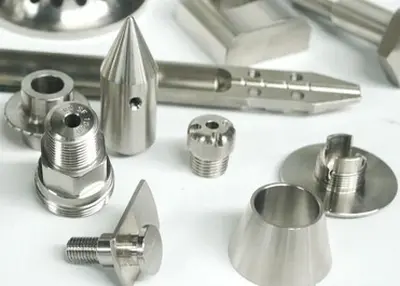 The Complete Guide to CNC Machining Parts: Types, Advantages & DesignApril 3, 2024The following is a thorough introduction to CNC machining parts, which is of great importance for your project. Let’s have a deeper look at these machined parts!view
The Complete Guide to CNC Machining Parts: Types, Advantages & DesignApril 3, 2024The following is a thorough introduction to CNC machining parts, which is of great importance for your project. Let’s have a deeper look at these machined parts!view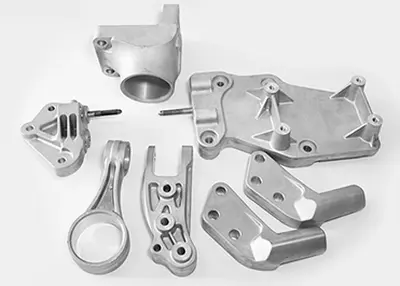 What Is High Carbon Steel? What Is the Difference Between High Carbon Steel Sk2, Sk4, Sk5, Sk7, Etc.?October 27, 2023High carbon steel is a type of steel with a carbon content between 0.6% and 1.7%, which contains much more carbon than ordinary carbon steel, and is therefore also caled carbon tool steel. High carbon steel has high hardness, high strength, low toughness, and is easy to quench and temper, so it is widely used in the manufacture of machine parts, tools and blades that require high strength and hardness.view
What Is High Carbon Steel? What Is the Difference Between High Carbon Steel Sk2, Sk4, Sk5, Sk7, Etc.?October 27, 2023High carbon steel is a type of steel with a carbon content between 0.6% and 1.7%, which contains much more carbon than ordinary carbon steel, and is therefore also caled carbon tool steel. High carbon steel has high hardness, high strength, low toughness, and is easy to quench and temper, so it is widely used in the manufacture of machine parts, tools and blades that require high strength and hardness.view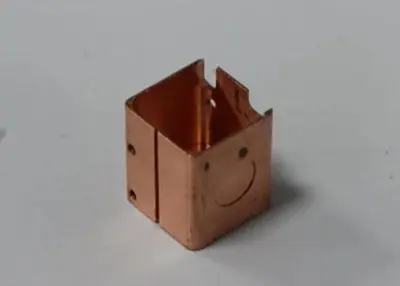 A Comprehensive Copper Analysis for CNC MachiningJanuary 12, 2024Here are various properties of copper - from its elemental essence, physical prowess, thermal and electrical properties, to applications in CNC machining.view
A Comprehensive Copper Analysis for CNC MachiningJanuary 12, 2024Here are various properties of copper - from its elemental essence, physical prowess, thermal and electrical properties, to applications in CNC machining.view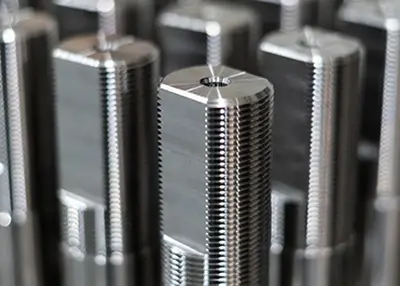 Why is Titanium Alloy a Difficult Material to Process?October 23, 2023Why do we think titanium alloy is a kind of difficult to machine material? Because of the lack of deep understanding of the processing mechanism and phenomena. However, the material characteristics of titanium alloys make it a challenge for many precision machine shop, and many engineers are searching for suitable solutions for this material. At Richconn, we have a wealth of experience in titanium CNC machining, choose our titanium CNC machining service, we can do it to your satisfaction.view
Why is Titanium Alloy a Difficult Material to Process?October 23, 2023Why do we think titanium alloy is a kind of difficult to machine material? Because of the lack of deep understanding of the processing mechanism and phenomena. However, the material characteristics of titanium alloys make it a challenge for many precision machine shop, and many engineers are searching for suitable solutions for this material. At Richconn, we have a wealth of experience in titanium CNC machining, choose our titanium CNC machining service, we can do it to your satisfaction.view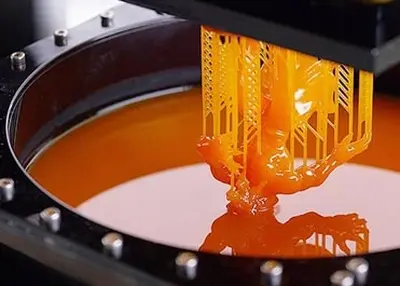 Types of 3D Printers: a Guide to 2023October 9, 20233D printing technology has evolved tremendously over the past few decades and has seen the emergence of a variety of different types of 3D printers. These different types of 3D printers differ in term...view
Types of 3D Printers: a Guide to 2023October 9, 20233D printing technology has evolved tremendously over the past few decades and has seen the emergence of a variety of different types of 3D printers. These different types of 3D printers differ in term...view